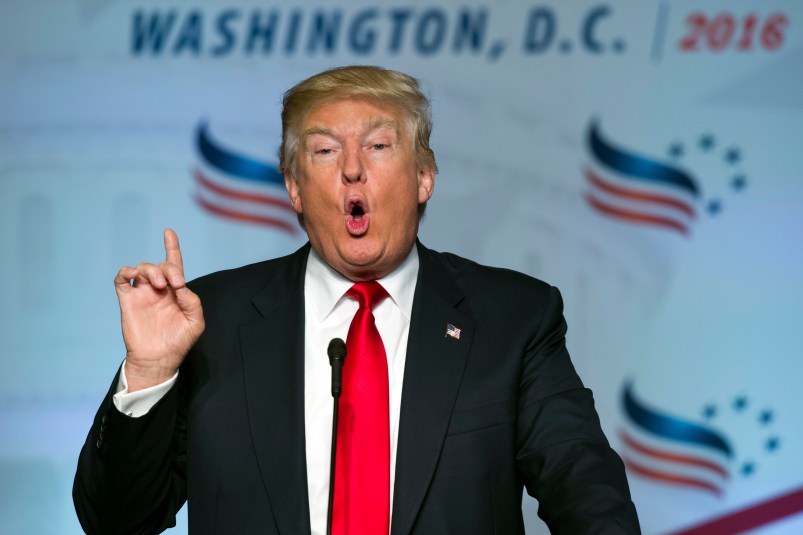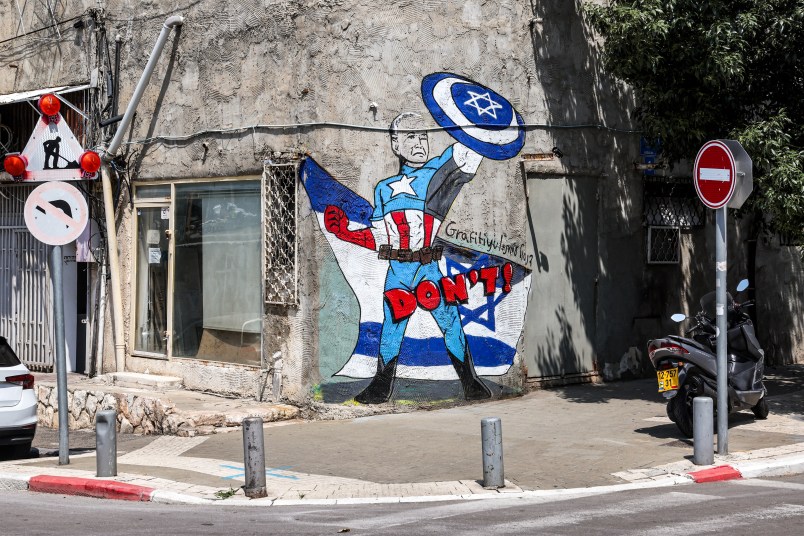Let me share a few thoughts about this news that during the campaign candidate Trump was warned to be on the lookout for foreign governments, including Russia, trying to infiltrate his campaign. If he saw anything suspicious, he was warned he should bring it to the FBI.
We can note a few caveats to this news. Hillary Clinton was apparently given the same briefing. And this is apparently a standard friendly heads up the FBI’s counter-intelligence officers give new candidates as they begin to receive classified intelligence briefings after the national conventions. So we cannot, on the basis of this report, say that the FBI was already so worried about Russian infiltration of Trump’s campaign that it thought it was necessary to give him a warning.
But there are a couple things I think we can say.
The first is the most obvious. According to this report and all other reporting on the Russia probe, no one from the Trump campaign ever reported any suspicious contacts to the FBI. Not the campaign itself. Not the candidate. Not any staffer for the campaign acting in some quasi-whistleblower capacity. No one. The point of these warnings isn’t to tell nominees they shouldn’t ally themselves with a foreign power. Presumably, they aren’t planning on doing that. But in the nature of the American presidential system, a nominee will often be someone with little or even no real experience dealing with classified information or knowing what attempted intelligence operations might look like. So it is a general heads up to be cautious.
As we have learned more and more over these last months about the Trump team’s numerous contacts with Russian nationals and government or intelligence officials, the key defense has always been that president-ing wasn’t their background. So if it looks fishy it was really just that they were naive or inexperienced.
Here’s where this additional fact becomes interesting. Let’s say it was just that: all these things were happening but Trump and his inner circle didn’t realize it was a problem. Okay, so far so good. Having received this warning, though, you would imagine someone might have said: “Wow, I sure hope these counter-intelligence guys don’t think our Russian friends who totally aren’t spies are spies. Maybe I should ring up that CI guy from the Bureau who told us to keep an eye out.” Or perhaps, “Man, we’ve sure got a lot of Russian friends we’ve met during the campaign. And that’s because we’re awesome. But I guess these FBI guys are really suspicious. So maybe I’ll just mention it so there’s no misunderstanding.”
It certainly seems like that thought did not occur to anyone. Not Trump. Not whoever else on his campaign was briefed. Not anyone he shared the warning with, if he did share it. (It’s not clear from the article whether it was Trump alone who was warned or Trump and some top advisors.) I think that tells us what we should already know: that Trump and his top advisors knew they were doing something wrong, even if it might not have gone so far as ‘collusion’. This just makes it all the more clear.
The second is one of the things that fascinates me the most about this whole story. As I’ve written earlier, FBI and FBI counter-intelligence agents knew that Trump had at least troubling ties to Russian organized crime, money-laundering and possibly intelligence operators long before the campaign. Long before. Someday I think we will read fascinating accounts of what CIA and FBI counter-intelligence officers thought as they watched Trump move closer and closer to the presidency. A lot of these weird ties really didn’t matter that much as long as Trump was a has-been real estate developer and a TV star. They would matter a whole lot if he became President.
But this warning didn’t come in a vacuum, even in the tighter chronology of the campaign itself. The report about this warning says it came in late July or early August. It was July 27th when Trump made his notorious public request for Russia to hack and release more of Hillary Clinton’s emails. So that bizarre statement might have come just after or just before that heads up. Wow.
So on the one hand, the FBI counter-intelligence officers were giving these standard, good-faith warnings. On the other, they already knew that Trump had made one of his five foreign policy advisors a man who the FBI had already put under FISA surveillance because they believed it was likely he’d been recruited as a Russian asset. In other words, it probably looked like there was a good chance Trump’s campaign had already been infiltrated just on the basis of Carter Page’s role. At least some of what we know now – some of the contacts, some of the signals or human intelligence about Russian efforts to infiltrate the Trump campaign – they already knew then. So either just after or just before this warning he’s out in public inviting foreign intelligence assistance to his campaign. Of course, it didn’t stop there. Both publicly and much more clandestinely Trump continued seeking out Russian assistance, friendship, understandings.
At some level I have to imagine that the people at the FBI charged with monitoring this stuff genuinely did not know what to make of it. They’re probably trained to assist people who are naive but acting in good faith. They’re probably trained to catch people who are acting clandestinely. But what about someone who is doing the latter, getting warned and also simultaneously flaunting what he and his aides are doing? All in real time? What were they to make of that? Going forward into the late campaign and the transition the contacts became much more sustained and in-depth.
This backdrop, this knowledge that something was happening, while also needing to began briefing candidate Trump and watching him say things on the campaign trail that were a lot like what a Russian asset would say … well, I really want to understand that story from their perspective.
For our present purposes, I think this news is not terribly surprising. It makes sense that such a heads-up would happen. It simply gives us more reason to believe what we largely already know: that Trump and his top advisors knew that they were doing something wrong. And since they knew it was wrong they worked hard to keep it secret and hidden. Just not that hidden and not that secret. Because after all, for most of them, it was their first time colluding.








